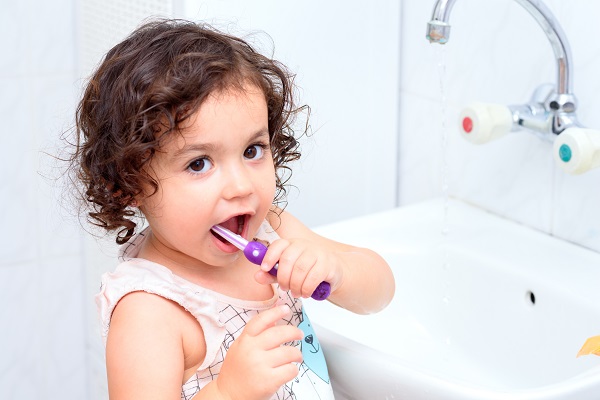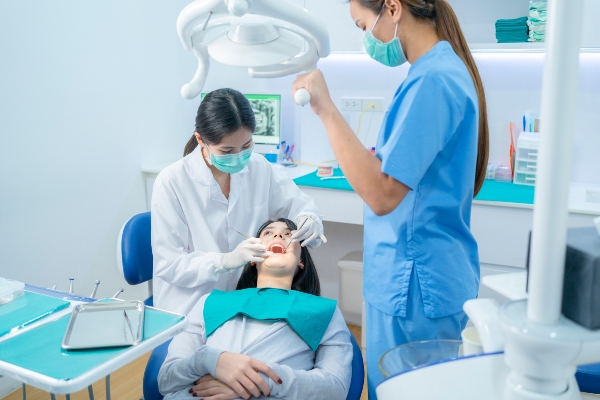A Pediatric Dentist Answers: Should I Pull My Child’s Loose Tooth?

The quick answer from a pediatric dentist: Do not pull your baby’s loose teeth. It is hard for children to chew if they have a loose tooth, so you may be tempted to assist with removing the teeth. The fact is that you should allow the tooth to come out on its own. Even if the loose tooth is stressing your child or causing sensitivity, it is better to wait instead of forcing it out.
What to know about loose teeth
Think of the tooth as a screw in a plaster wall. If you draw out the screw using a pair of pliers, you will end up pulling out part of the wall with it. However, if you unscrew the nail gradually, the wall will suffer less damage. Baby teeth are the same. The teeth are held in position by the gums and connective tissues in the mouth. Pulling out the teeth forcefully and prematurely can harm the soft tissues and cause excessive bleeding or pain in the roots. Absence of pain is the best sign that the tooth is ready for removal. If the child can turn the tooth 90 degrees or rotate it without any discomfort, then it is probably due for removal.
How to handle loose teeth
If the child is ready to lose the tooth, tell them to shake it with the tongue, but keep their hands away from it until the tooth is almost due for removal. Keeping fingers out also helps to prevent the introduction of germs into the mouth.
If the child keeps pulling, rotating or wiggling the tooth, provide them an apple. The force needed to bite down on the apple may dislodge the tooth (if it is ready for removal) or loosen it in its socket without causing damage to the gum tissues.
If the child is dealing with sensitivity from the loose tooth, help them cut foods into small pieces or provide soft foods. The tooth will loosen slowly from chewing, but this will help prevent pain from biting and tearing the food. Advise the child to brush and floss their teeth normally. If the tooth has been loose for too long, you may need to call or visit the pediatric dentist.
Know your child
Children respond differently to their first loose teeth. Some find the entire situation fascinating and do not worry about it, while others may be concerned that a part of their body is behaving strangely. Some children may wiggle and pull the tooth, while others refuse to use or touch the tooth completely.
Final note
You have probably forgotten what it felt like when you had your first loose tooth. A loose baby tooth is a regular occurrence and marks the beginning of permanent teeth. If your child is worried about their teeth, reassure them that the feeling is only temporary. Let them know that it is normal for the baby tooth to loosen and come out to be replaced by the adult teeth growing below them. Whatever you do, do not attempt to force the tooth out of its socket. If you have additional questions or concerns, contact a pediatric dentist.
Request an appointment here: https://www.hvkidsmiles.com or call Hudson Valley Pediatric Dentistry at (845) 363-4177 for an appointment in our Middletown office.
Check out what others are saying about our services on Yelp: Read our Yelp reviews.
Recent Posts
Dental sealants safeguard the teeth against tooth decay by forming a barrier between bacterial plaque and the tooth enamel. The many tiny grooves on the surfaces of the back teeth may catch food particles. Since routine brushing cannot entirely remove them, they often stay there for an extended period. Cavities develop as a result of…
If a cavity develops and worsens, it could lead to the risk of a dental emergency due to an infection or severe discomfort. Dental sealants significantly reduce the risk of a dental emergency by helping to prevent cavities in vulnerable areas of teeth. Read on to learn how dental sealants can prevent a dental emergency…
Pediatric dentistry is a field of dental care that helps foster healthy oral habits in children and adolescents that can last a lifetime. By introducing young patients to regular dental care early on, these dental professionals and the patient's parents can set the foundation for strong, healthy teeth and gums. Here are five ways pediatric…
Cavity treatment for kids is important to keeping their teeth healthy and their smiles growing strong. Cavities are one of the most common dental problems in children, but they can be treated and prevented with proper care. Parents can help their children maintain healthy teeth and avoid future dental issues by understanding how to treat…


